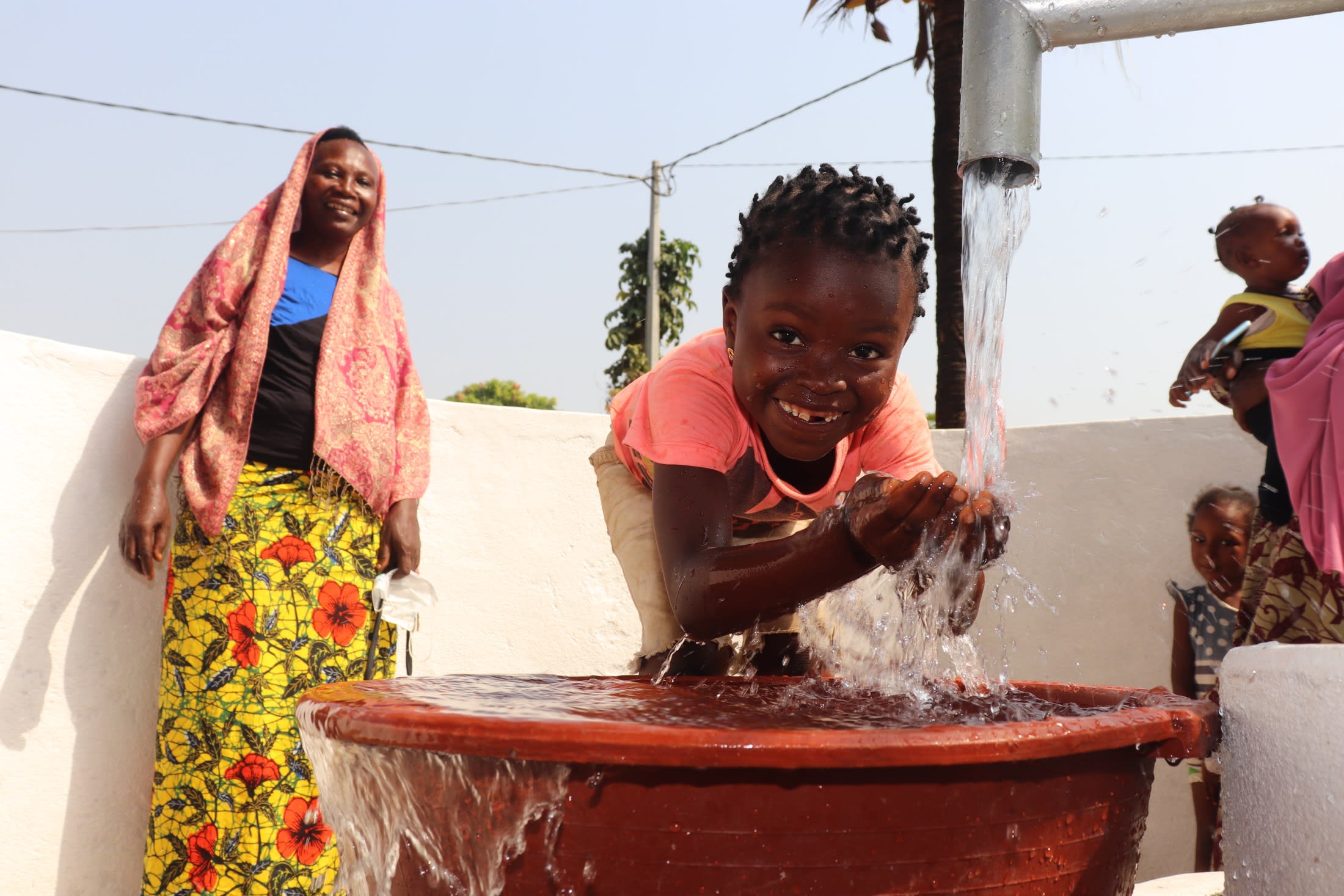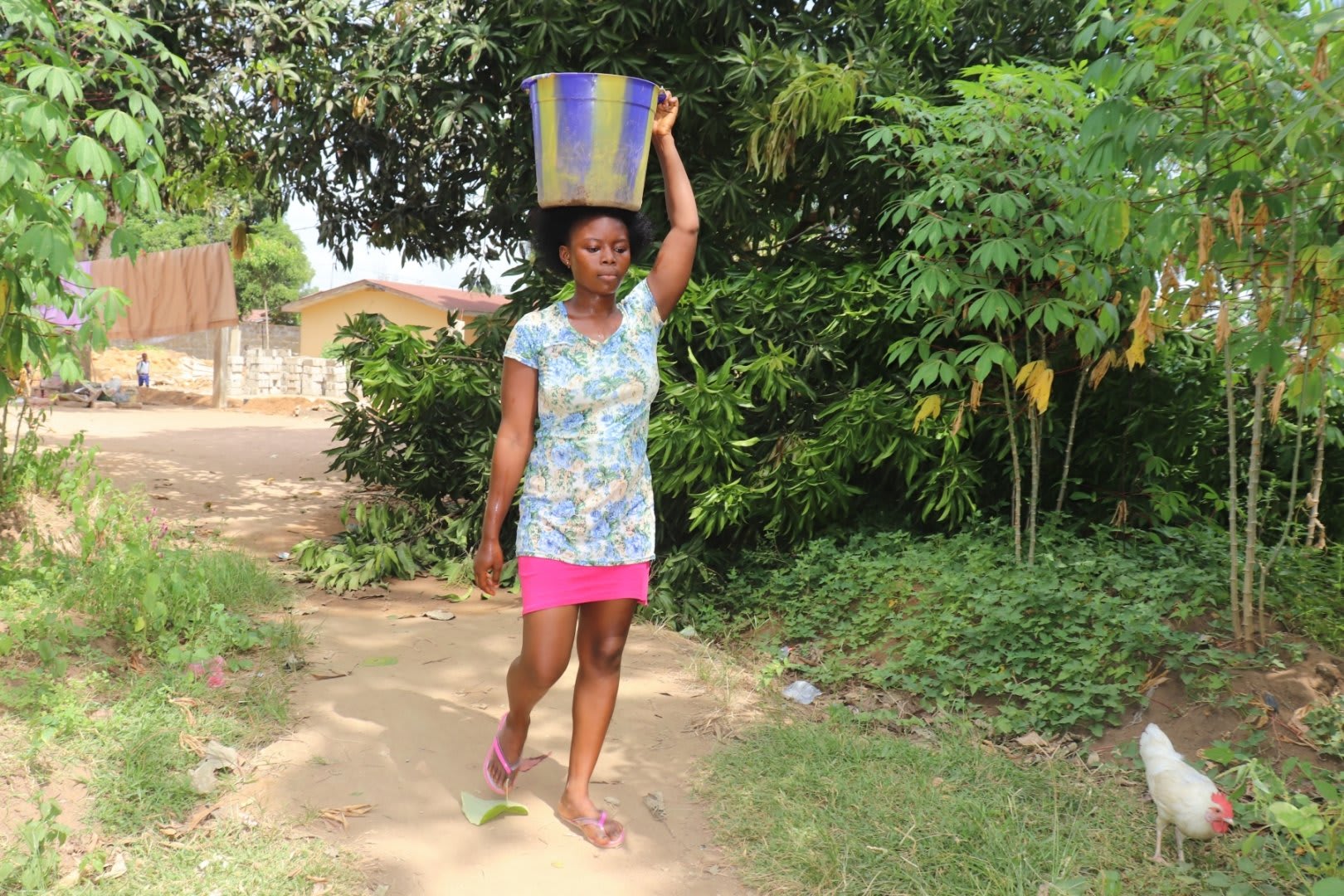The area of Masoila off Swarray Deen Street is quite large, with 395 people living in modern houses. There are mango trees amongst many other trees creating shade for resting during the sunny days. The area is usually accessible by car, though sometimes large potholes filled with water render the road impassable, especially during the rainy season. In the dry season, dust from passing vehicles replaces the water-filled potholes.
The main water source for people here is a seasonal well. When the well does not produce water, the children and women tasked with fetching water have to search for it elsewhere. That generally means walking an additional fifteen or twenty minutes each way to the nearest water point. The added time delays people's schedules daily schedules. For children, that means arriving to school late. Among women, those who work lose wage-earning hours, and those working at home have less time to complete their long list of tasks.
Isatu is a young teenager who lives in the community. She told us that whenever there is a water shortage at the well, she gets to school late because of the time she spends searching for water. During the dry months, Isatu spends more time looking for water than preparing for school.
One of the alternative water sources is a protected hand-dug well with a pump, but this water source is privately owned, and it is located in a fenced-in compound. Because of this, the well tends to be difficult to access as it is under the sole regulation of its owner. The second alternative water is a hand-dug well mostly open to contamination.
This community's common livelihood is petty trading and motorbike riding, the latter mostly done by the young men. A few people have small gardens behind their backyards with raised beds used to plant vegetables for consumption. The swamp and stream are far off the community, depriving the people of engaging in large-scale gardening, farming, and fishing like other communities with such resources.
What We Can Do:
Well Rehabilitation
The well marked for this overhaul is dry for a few months every year and needs major work to supply adequate, clean water to the community year-round. The pump will be removed, and a hand auger will be lowered inside and powered by a drill team. This hand auger will allow the team to drill several meters deeper to hit a sufficient water column to ensure the well supplies water throughout all seasons.
As the team drills, a casing will be installed, transforming the bottom of this hand-dug well into a borehole. PVC piping will connect this lower system directly to the pump, a construction that we know will also improve the quality of water.
Once this plan is implemented, everyone within the community will have access to safe drinking water quality and quantity, even through the dry months.
Hygiene and Sanitation Training
There will be hygiene and sanitation training sessions offered for three days in a row.
After our visit, the hygiene and sanitation trainer decided it would be best to teach community members how to build a tippy tap (a hand-washing station built with a jerrycan, string, and sticks). They will use these tippy taps for handwashing demonstrations and will also teach about other tools like dish racks and the importance of properly penning in animals.
This training will also strengthen the water user committee that manages and maintains this well. They enforce proper behavior and report to us whenever they need our help solving a serious problem, like a pump breakdown.

 Borehole Well and Hand Pump
Borehole Well and Hand Pump


































